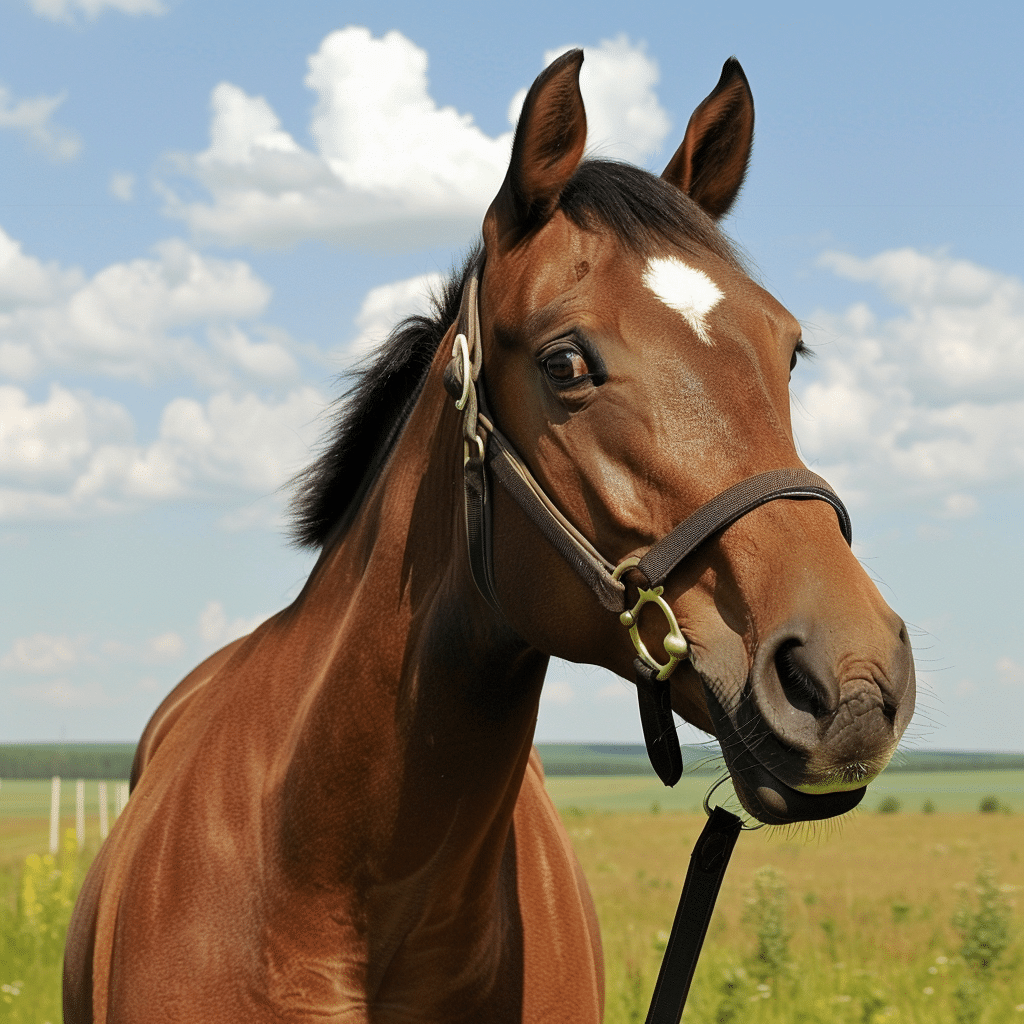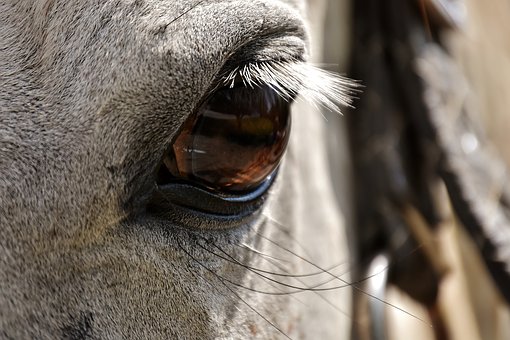Your horseās eyes are big, and they can do some pretty incredible things. Here at Prime Stables, we are passionate about learning everything we possibly can about horses and it was the study of their eyes that really excited us. Letās take a look at some of the most impressive things your horseās eyes can do ā some points may come as a surprise!
1. Horses Have Some of the Biggest Eyes on the Planet
Horses have extremely big eyes – in fact, they have some of the biggest eyes of all land mammals; With a diameter of around 2 inches, your horseās eyes simply canāt be ignored. And they can do some pretty incredible things, too.
2. Your Horseās Eyes Allow for a Wide Range of Vision
The size of your horseās eyes, and the fact they are positioned on the side of your horseās head, mean that he can see nearly 360 degrees. The only blind spot your horse suffers from is directly in front and directly behind his body.
3. Your Horse Can Use His Eyes Separately
Most horses have a thing called monocular vision. What does that mean, I hear you ask? Well, it means that your horse can use both his eyes separately. So, your horse can see and process two different things happening on different sides of his body at the same time. Pretty incredible, right?
4. Horses Can Use Their Eyes Like Binoculars
When looking ahead, a horse can use his eyes like binoculars, getting a better focus on things in the distance. This helps a horse focus both his eyes on a single object in front of him. In the wild, binocular vision would have been used by horses, most commonly, to give them a greater field of view when on the lookout for predators.
5. Everything is Magnified
For your horse, thanks to his extravagantly large eyeball, everything is magnified fifty percent larger than we perceive it. This is ideal, as mentioned above, in situations when your horse has to use his binocular vision to spot potential predators.
6. Your Horse Can See in the Dark
One of the many incredible things about your horseās eyes is that they allow him to see in the dark. In fact, your horse can see in the dark better than a cat can! So, the next time you walk past his stall on a dark winter evening, donāt be surprised when he whinnies a āhelloā to you. After all, he can see you!
7. Your Horse Has an Effective Blink Reflex
Around your horseās eyes are a collection of sensory hairs which, if touched or come too close into contact with, will trigger the blink reflex. This helps your horse protect his eye from damage, scratches, or debris being blown in and causing discomfort. If your horse starts blinking excessively while youāre grooming him, itās likely youāve groomed too closely to his eye and he is automatically blinking to ensure no damage is done.
8. Horses are Not Colour Blind
Against popular perception, horses are not colour-blind. In fact, horses have whatās called a two-colour or dichromatic vision. Put simply, this means that they can distinguish colours in two wavelength regions; blue and green (and various shades and variations based around these two colours). They cannot see red or yellow.
As a result, when creating obstacle courses for horses with jump rails, it is important that organisers paint the rails a different colour from the footing so that the horse can decipher where he needs to jump. Research suggests that horses are far less likely to knock a rail down when the jumping rails are painted in two or more contrasting colours ā presumably because they can see the jump clearly.
Signs Your Horse Isnāt Seeing Well:

- More regular spooking and a more exaggerated reaction
- Frequent delayed reactions
- Side-to-side head movements
- An inability to see his footing well, which may result in ājiggingā on uneven ground.
So, taking into account all the incredible things your horseās eyes can do, is there a positive way you can introduce your horse to a herd without spooking him? Find out here.
Contact Prime Stables
If you have any questions, or you would like to know more about horses and whatās required to care for them, call Prime Stables today. We would be more than happy to answer any questions you may have today.


